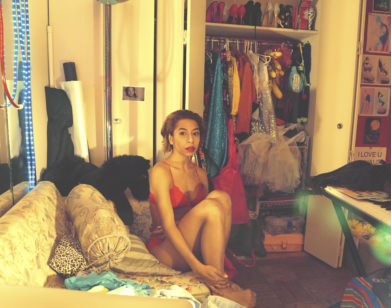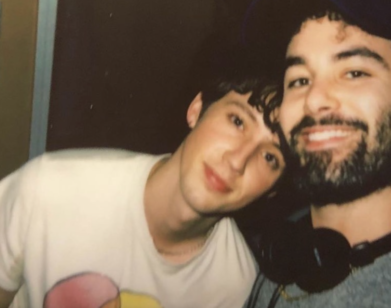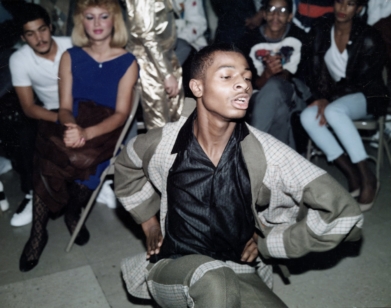The Immersive Play As Much As I Can Blurs Reality with Fantasy
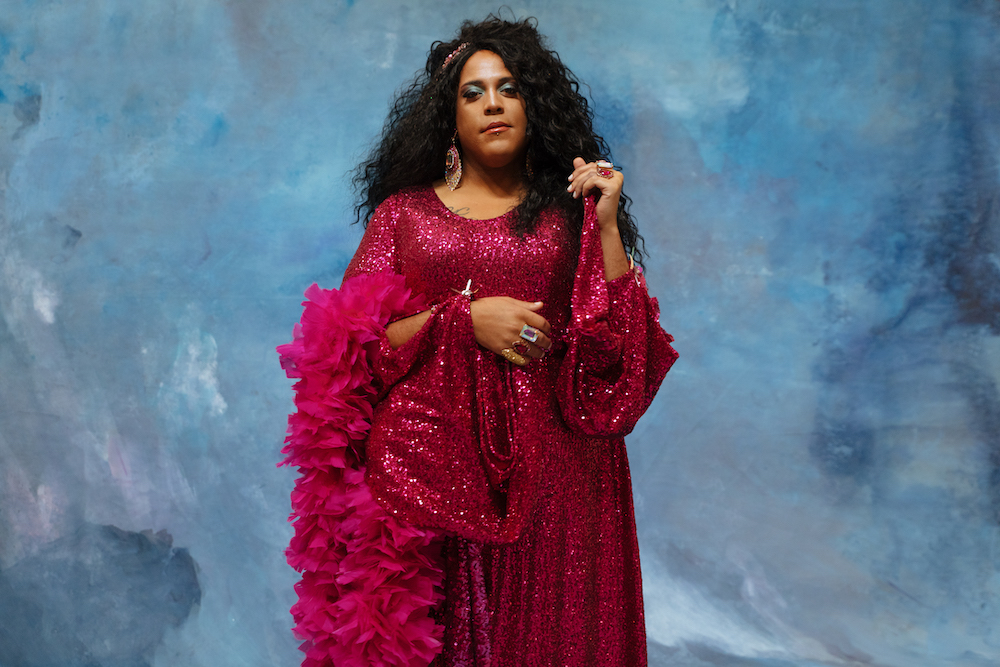
Cory Gibson in As Much As I Can. All photos by Gioncarlo Valentine.
For playwright Sarah Hall, social constructs are meant to be, well, deconstructed. As it happens, her play As Much As I Can, now being restaged at Joe’s Pub at the Public Theater, is full of them, standing firmly at the intersection of race, religion, and sexual identity—specifically as they relate to black gay men with HIV. Created with the support of ViiV Healthcare’s ACCELERATE! Initiative, the play follows a handful of intertwined characters as they go from the waiting room to the bedroom, all the while wrestling with queerness and the murky taboos that can come with an HIV status. Interactive and immersive, As Much As I Can places the audience quite literally in the center of the action, blurring the lines between fiction and reality–though that’s about as much as Hall wants audiences to know. (“Some of the beauty of it is the surprise,” she says). Between final rehearsals for its opening Thursday night, Interview spoke with Hall about how the play has evolved since its inception, why uncertainty is the best teacher, and why As Much As I Can is doing more than meets the eye.
———
SARAH HALL: It’s our last day of rehearsals, so we’re all sweating bullets, but we’re great.
MARK BURGER: How is it coming together?
HALL: It’s going great. It’s really exciting because we always re-stage it for the specific space, so we’ve totally reconfigured it for The Public. It makes the show feel really new, and you don’t really know exactly what it’s going to look like until you put it up in the space.
BURGER: So the play itself is set up to be flexible in different spaces?
HALL: I think it’s two parts: one, my philosophy as a creative is I’m totally anti-rigidity. So I think it’s really important to not make your work so precious that you can’t modify it, so that you’re adapting to an environment to make it better. The play was written a little bit from that standpoint, so I reconfigured it and re-ordered some things for this specific setting. Then, the inherent philosophy of the play, the script, and also the way the actors interpret it is very much that the audience is part of the acting troupe, so to speak. It’s intended for them to have reactions and also suddenly find themselves inside of scenes.
BURGER: It seems delicate to have an audience being a part of the show in that way.
HALL: It is. I think that I inherently have a lot of trust in people, so I feel really confident with taking the risk of allowing people to speak, to have a strong reaction, to move, because I feel that that’s an essential part of them being a partner in this experience. If I just tell you to sit there and be quiet, it’s not really giving you the space as a human being to process what we’re talking about. And I also believe that we learn from our audiences. The way that they talk back to us and move with us teaches us things about the piece that we didn’t even know when we created it.
BURGER: What would you say is the most difficult part of this kind of show?
HALL: I think one thing that’s incredibly difficult is the proximity of the subject matter to some of the actors’ lives. I think it’s really, really challenging to play stories that are so close to your own experience, and so close to things your friends have gone through. I really have a tremendous, tremendous respect for the men and the women who’ve acted these roles, and the way that they have used them as fulcrums in their own life to process things, to understand things, and to really find their own. I say to my actors all the time, “If you don’t feel powerful, we’re not doing this right. I want you to be powerful.” Because I think there’s a lot of shows right now which are very much coming from spaces of trauma, which are very important, and very honest, and we need to have those shows.
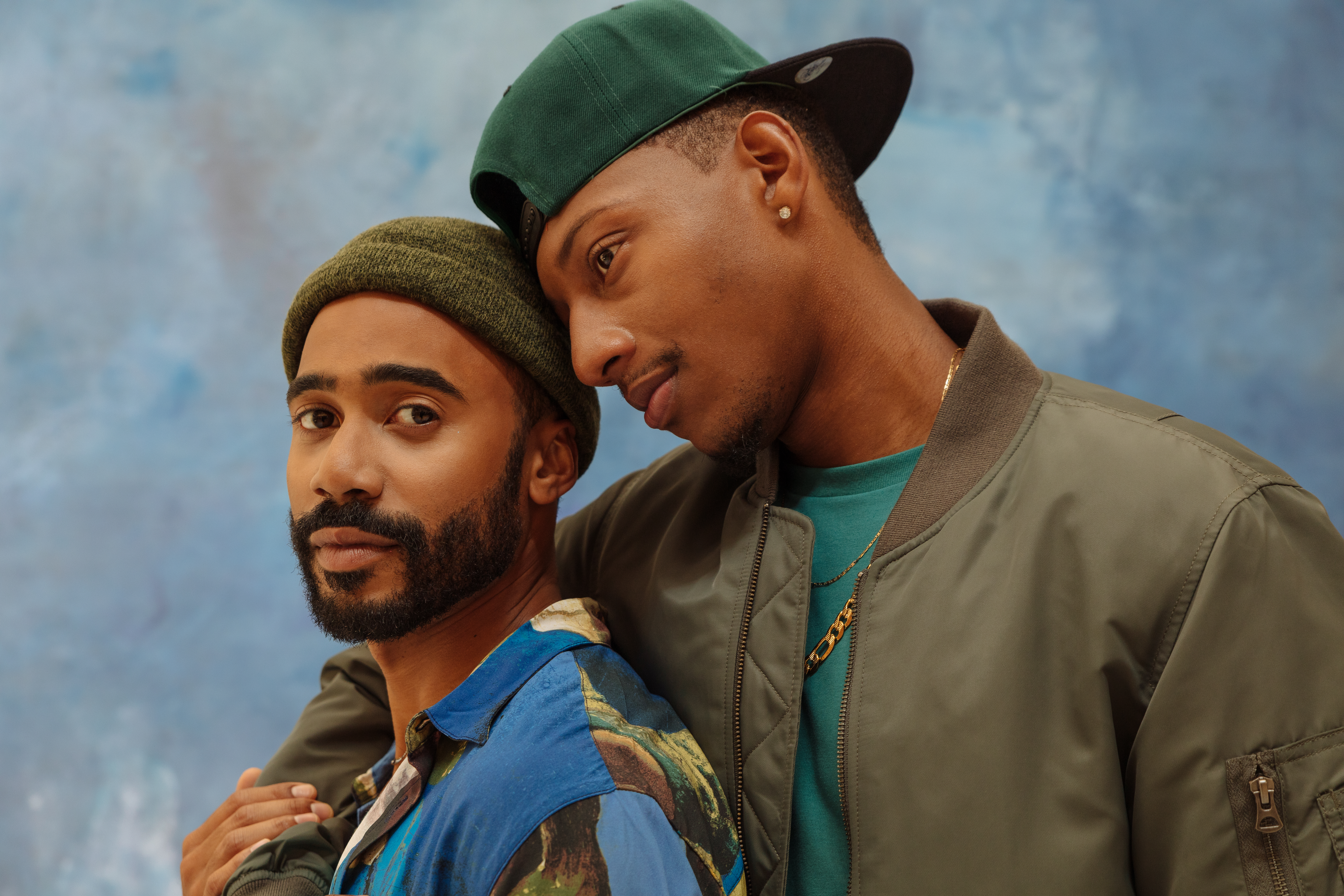
Dimitri Moïse and Brandon Gill in As Much As I Can.
BURGER: I mean, how can it not be powerful for anyone involved?
HALL: Yeah. I’m sure you know, but most of the stories about HIV have been heavily dominated by the white, male perspective. And I think that we have an incomplete canon of creative work right now because of that. I think it is so important to have this piece be a space for all of this expression–for the actors, my choreographer, who’s incredible, he’s a queer, black man, our costume designer–all of these perspectives get to come forth and say, ‘This is my experience,’ and then invite people into it.”
BURGER: I think, especially in this era where it’s very popular to talk about social justice issues, or communities and experiences that are outside the mainstream, it’s easy for those things to get commodified by people who aren’t part of those communities or who haven’t had those experiences. It’s wonderful that you were incredibly intentional with bringing people in.
HALL: Yes, so you’re right, and thank you. I’m so happy that I get to talk about it, because I feel so passionate about it. But I feel the most passionate about the partners that I have–the people who are part of this project are absolutely amazing. Nothing makes me happier than getting to shove them out there and have them be in the spotlight, because they’re just exceptional artists. And I’m sorry, they’re just not getting enough attention. [Laughs.]
BURGER: What’s your favorite aspect of the show would you say, if you had to pick one?
HALL: There is a choreographed moment between two of the characters, and it’s the scene that literally has no dialogue. It just has the men moving together. It was choreographed by Yeman Brown. I think it’s just such a beautiful, powerful look at two men being intimate with each other, being vulnerable with each other, negotiating their physical and emotional relationship.
BURGER: Do you have any specific films, artists, or works of art or literature that you looked to when you were creating this piece?
HALL: As a creative person who builds these types of immersions generally, one of my great inspirations has actually been Michael Douglas’s iconic work The Game. I’ve studied a lot of neuroscience and cognitive science. As human beings, we act as though the social constructs that we create are unavoidable and absolute, and they are just things that we have all decided to participate in. And the minute that we decide not to participate in them, they are no longer true. So my work and this play is very much about saying, “We are so powerful, and that if we decide to believe in a different reality, we can have it tomorrow.” It’s also getting people to realize their power. I think sometimes you get people to change by disempowering them, and here, I’m saying to the audience, “You are so powerful. You are having such an impact on these men’s lives, sense of self, et cetera. You are powerful enough to make the change with us, because you’ve already helped create this situation as it is.”
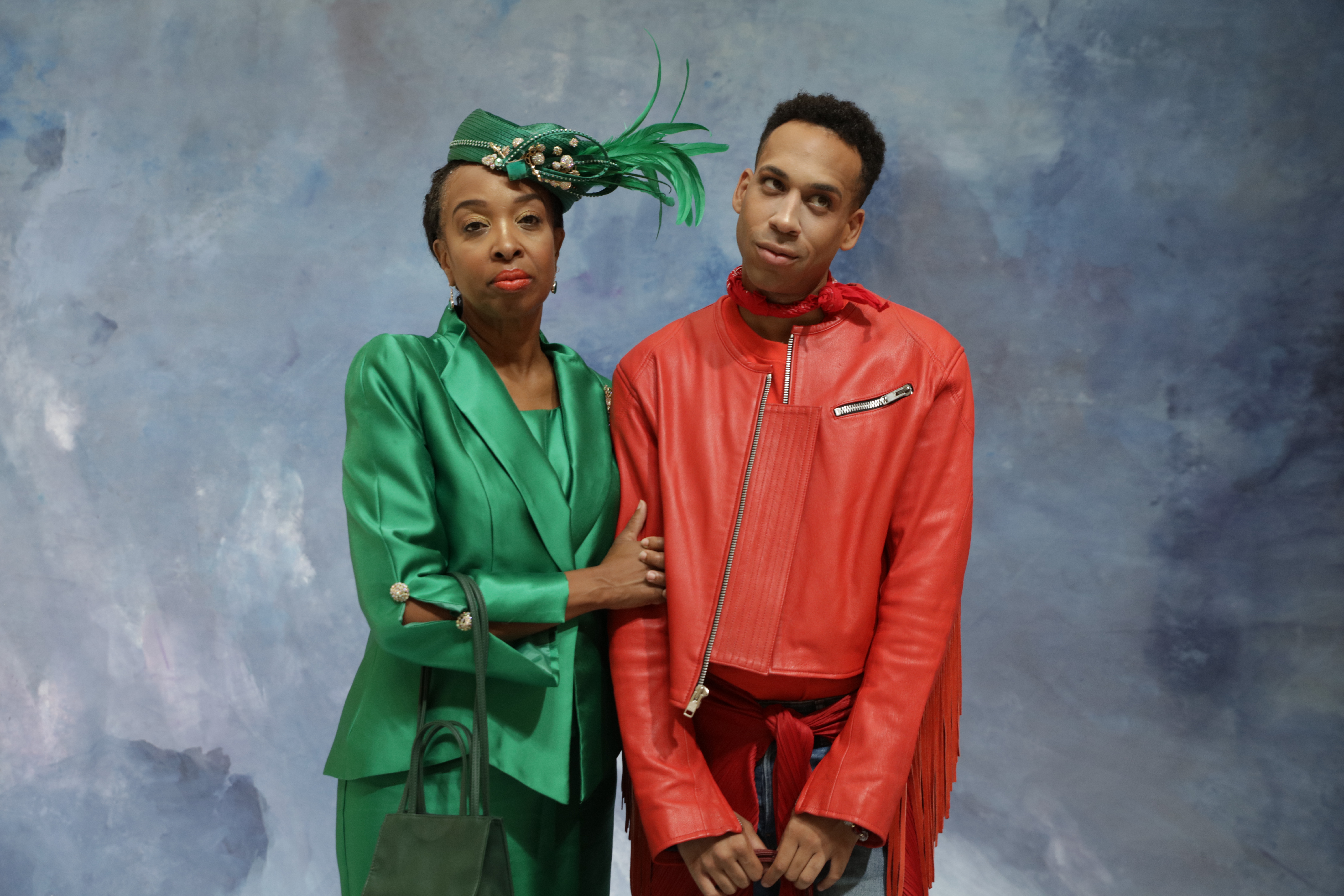
Dawn L. Troupe and Marquis Johnson in As Much As I Can.
BURGER: I love thinking about big, meta stuff like that, but it’s true.
HALL: And it’s exciting. That’s why people like things like Burning Man, right? It’s this idea that we can create another social construct which make us feel happier, freer, more connected. It’s just a matter of everybody participating.
BURGER: And in your case, people are literally participating.
HALL: Literally. And there’s that moment where it’s so innocent, where they’re going, “Oh my God, is that an actor or is that… Are they at the show? Am I supposed to respond?” All of the artifice falls away, and they just do. They just say. It’s like when you tap someone’s knee and their leg kicks. They just respond.
BURGER: How do you prepare someone to enter an interactive space like that?
HALL: The best thing is, you just don’t really tell them anything, because some of the beauty of it is the surprise. I feel like, now, we just know too much. We have so much habituated behavior, where you see three seconds of something and you go, “I know what that is, and I know how I’m going to feel about it, and I know what I’m going to do, and now I’m onto my next thing.” When you’re surprised or uncertain, your body doesn’t know how to react, so your brain actually sends out all these neural chemicals that basically open the synapses in your brain so you’re more primed for learning. So uncertainty is actually an incredible way to help people learn.
BURGER: It sounds like, just by the nature of the show, the final piece that’s missing from the dress rehearsals is the audience members walking into it.
HALL: Exactly. It isn’t complete until your audience is there. And it’s not about perfect, it’s about connected and honest. And that just makes a different kind of show.

